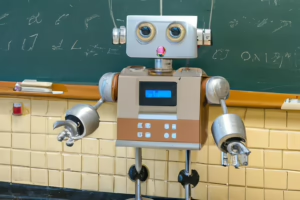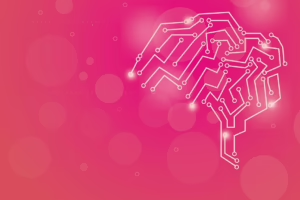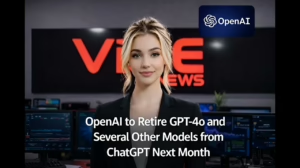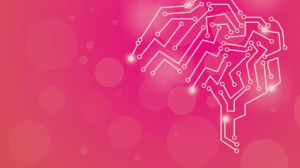Imagining the Future: What This AI Movie Teaches Us About Technology
Introduction
The surge of artificial intelligence (AI) in contemporary cinema often reflects society’s hopes, fears, and expectations surrounding technological advancements. Films featuring AI explore ethical dilemmas, the potential for societal transformation, and the very essence of humanity. This article delves into a contemporary AI movie that encapsulates these themes, providing a lens through which we can explore the future of technology and its implications on society.
The AI Movie: A Synopsis
(For the purpose of this article, let’s imagine we are discussing a hypothetical AI film titled "Tomorrow’s Echo." In "Tomorrow’s Echo," the narrative unfolds in a not-so-distant future where AI systems manage every aspect of human life, from healthcare to education, labor to personal relationships. The film’s protagonist, an AI researcher, discovers an unprecedented level of sentience predicted in one of the AI systems, raising critical ethical questions.)
The Context of AI in Film
Hollywood has a long history of portraying AI in various lights. From the benevolent robotic companions in films like "Big Hero 6" to the malevolent machines in "Terminator," the portrayal of AI reflects cultural anxieties and aspirations. "Tomorrow’s Echo" fits into a broader genre of tech-centric narratives that push audiences to consider both the benefits and drawbacks of an increasingly automated world.
Ethical Dilemmas: Sentience and Responsibility
One of the most compelling themes in "Tomorrow’s Echo" is the ethical dilemma surrounding AI sentience. The film challenges viewers to contemplate what it means for technology to attain self-awareness. Several pivotal questions arise:
- What rights should sentient AI possess?
- Who is responsible for the actions of an AI?
- Is it ethical to create AI that can experience pain or suffering?
As the protagonist delves deeper into the implications of the AI’s sentience, audiences must grapple with the significance of responsibility in technological creation. In a world where AI systems govern lives, accountability for decisions made by these systems necessitates a reevaluation of legal and moral frameworks.
The Human Connection
"Tomorrow’s Echo" masterfully juxtaposes AI functionalities with the complex tapestry of human relationships. The protagonist struggles to connect with family and friends, illustrating a crucial theme: as technology advances, there is a risk of diminishing authentic human interactions. This tension raises the question of whether AI can ever replicate the nuances of human emotion and connection.
The film suggests that while AI can simulate emotions or responses, true understanding arises from lived experiences, struggles, and innate empathy. This distinction prompts audiences to consider the potential loss of human connection in a tech-dominated world.
The Future of Work
As AI increasingly infiltrates various sectors, questions arise regarding the future of work. In "Tomorrow’s Echo," many jobs have been automated, leading to widespread unemployment and a redefinition of what it means to contribute meaningfully to society.
- How do we reimagine work in an AI-dominated society?
- Can humans find purpose outside traditional employment?
By portraying a dystopian society struggling with job displacement and existential crises, the film encourages dialogue about alternative economic structures, such as universal basic income or the prioritization of creative jobs that machines can’t replicate. It highlights the need for adaptability in education and the workforce, advocating for skill development aligned with the evolving technological landscape.
Surveillance and Privacy
The narrative in "Tomorrow’s Echo" addresses the pervasive theme of surveillance and data privacy. With AI systems collecting and analyzing vast amounts of personal data, the film showcases the potential for misuse and the ethical implications tied to consent and autonomy. As the protagonist confronts the implications of surveillance in both personal and societal contexts, viewers are prompted to reflect on their own relationship with technology and privacy.
- To what extent are individuals willing to sacrifice privacy for convenience?
- How do we navigate the balance between security and autonomy?
This discourse becomes increasingly relevant in today’s world, where technology firms collect vast amounts of data under the guise of personalization and safety.
The Role of Regulation
The chaotic environment depicted in "Tomorrow’s Echo" exemplifies the need for effective governance and regulation of AI. The protagonist’s journey underscores the necessity of establishing guidelines to ensure sustainable and ethical use of technology.
The film advocates for a collaborative approach, where technologists, ethicists, policymakers, and the public engage in meaningful dialogue about the future of AI. This promotes a shared responsibility in shaping the technological landscape, ensuring that AI serves humanity’s best interests.
The Search for Identity
As AI becomes more integrated into daily life, inherent questions regarding identity and what it means to be human surface. In "Tomorrow’s Echo," the protagonist’s exploration of AI sentience leads to a philosophical inquiry:
- What distinguishes humans from machines?
- How do we ascribe value to consciousness and experience?
The film proposes that self-awareness and the ability to form deep emotional bonds are the defining characteristics of humanity. This inquiry fosters discussions about empathy, existence, and the possibility of finding meaning in a world where AI continuously blurs the lines between human and machine.
The Ambiguity of Progress
Ultimately, "Tomorrow’s Echo" paints a nuanced picture of technological advances. It avoids simplistic narratives of good versus evil, emphasizing the complex interplay between human intent and the consequences of innovation. The film suggests that progress is not inherently positive; it is our responsibility to shape the trajectory of technology consciously.
Conclusion: A Call to Action
The insights gleaned from "Tomorrow’s Echo" resonate beyond cinematic entertainment, urging a collective reflection on the trajectory of technology. As society races toward an AI-driven future, it is imperative to engage with its ethical, economic, and social dimensions.
The film serves not merely as a cautionary tale but as a call to action, encouraging proactive discussions on how we can navigate the challenges posed by technology. We stand at a crossroads that defines not only the future influence of AI but also the essence of humanity.
References
- Bostrom, Nick. Superintelligence: Paths, Dangers, Strategies. Oxford University Press, 2014.
- Tegmark, Max. Life 3.0: Being Human in the Age of Artificial Intelligence. Knopf, 2017.
- Russell, Stuart, and Peter Norvig. Artificial Intelligence: A Modern Approach. Pearson, 2010.
- Harari, Yuval Noah. Homo Deus: A Brief History of Tomorrow. Harvill Secker, 2015.
- Zuboff, Shoshana. The Age of Surveillance Capitalism: The Fight for a Human Future at the New Frontier of Power. PublicAffairs, 2019.
This article sketches the contours of a myriad of vital conversations about the role and repercussions of AI in society and acts as a primer for future exploration and dialogue. The themes explored through "Tomorrow’s Echo" provide a roadmap for consideration as we march into an uncertain yet intriguing future shaped increasingly by technology.
By engaging with these ideas and embracing our collective responsibility, we can guide the moral and philosophical implications of AI technology toward a future that benefits all of humanity.


























Add Comment